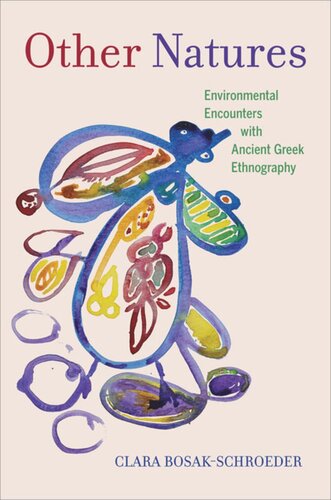

Most ebook files are in PDF format, so you can easily read them using various software such as Foxit Reader or directly on the Google Chrome browser.
Some ebook files are released by publishers in other formats such as .awz, .mobi, .epub, .fb2, etc. You may need to install specific software to read these formats on mobile/PC, such as Calibre.
Please read the tutorial at this link: https://ebookbell.com/faq
We offer FREE conversion to the popular formats you request; however, this may take some time. Therefore, right after payment, please email us, and we will try to provide the service as quickly as possible.
For some exceptional file formats or broken links (if any), please refrain from opening any disputes. Instead, email us first, and we will try to assist within a maximum of 6 hours.
EbookBell Team

4.0
36 reviewsAncient Greek ethnographies—descriptions of other peoples—provide unique resources for understanding ancient environmental thought and assumptions, as well as anxieties, about how humans relate to nature as a whole. In Other Natures, Clara Bosak-Schroeder examines the works of seminal authors such as Herodotus and Diodorus Siculus to persuasively demonstrate how non-Greek communities affected and were in turn deeply affected by their local animals, plants, climate, and landscape. She shows that these authors used ethnographies of non-Greek peoples to explore, question, and challenge how Greeks ate, procreated, nurtured, collaborated, accumulated, and consumed. In recuperating this important strain of ancient thought, Bosak-Schroeder makes it newly relevant to vital questions and ideas being posed in the environmental humanities today, arguing that human life and well-being are inextricable from the life and well-being of the nonhuman world. By turning to such ancient ethnographies, we can uncover important models for confronting environmental crisis.